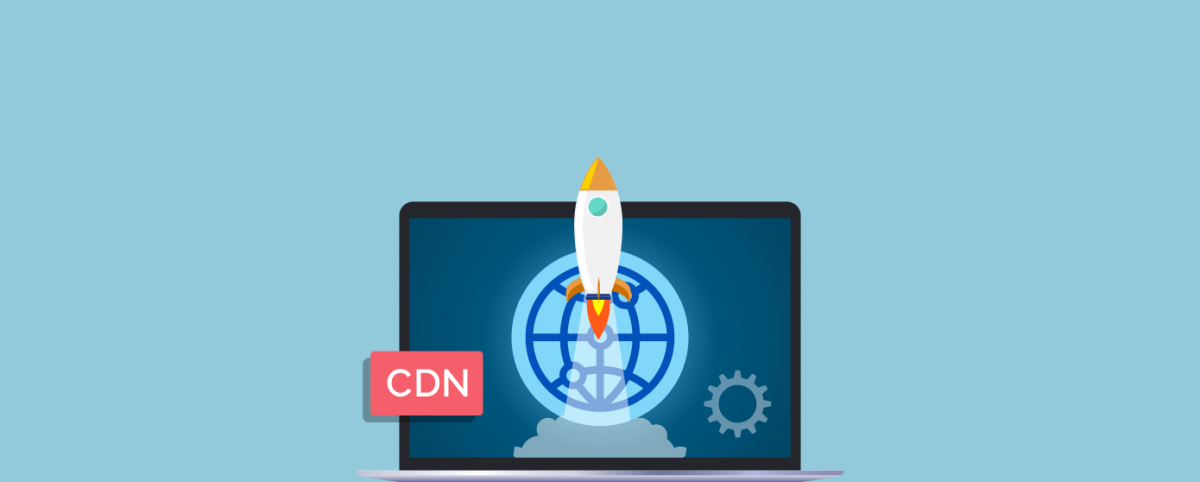Difference Between A CDN And Web Accelerator
There is an explosion of websites, social media, e-commerce, content-streaming platforms, and hyper-personalized web experiences in the digital era. As a result, massive volumes of generated content need to be served to end-users reliably in real-time without delays or crashes regardless of their location, network, device, or browser. To this end, CDNs and web accelerators are used.
Are a CDN and a web accelerator the same, right? Not really. Despite their ability to accelerate websites and ensure faster content delivery, some key differences exist between a CDN and a web accelerator.
In this article, we look at what web accelerators are and how they differ from CDN.
What is a Web Accelerator?
Web accelerators are proxy servers that ensure speedier access to websites/ web applications, boost website performance, and optimize and secure web traffic. These are not networks; they typically are hardware, installable, self-contained software, or cloud solutions installed on PCs, laptops, ISPs, and mobile devices.
Web application accelerators offer both client- and server-side optimizations to help control page loading and access times and reduce overall latency to make seamless user experiences.
The Client-side is the front-end or top layer of the application that deals directly with client requests such as content requests, file requests, etc. Client-side optimization deal with optimizing client-side requests. These include:
- Page compression
- Content and image rewriting and optimization
- CSS and JS minification
- TCP acceleration
The server-side is the backend of the website/ web application. Server-side optimizations improve server performance, offloading web servers, reducing the time needed to generate web pages, etc. These include:
- Caching
- SSL offloading
- Compression offloading
Web app accelerators do not just boost website performance but also extend an extra layer of security to web applications. It filters out undesirable aspects of the website, such as ads. These secure web accelerators restrict user access to the origin web server by caching content, thus preventing malformed requests from reaching the server. Caching also helps ensure that the website can serve content to users even when the origin server is unavailable. You can enforce rate-limiting and geo-limiting through custom caching policies to prevent DoS and DDoS attacks.
Benefits of Web Accelerators
- Boost website performance
- Continued availability of content and websites even when the origin server is facing a downtime/ under attack
- Additional layer of security to web applications
What is a CDN?
A CDN or Content Delivery Network is an intelligent, geographically-dispersed network of proxy servers and data centers that accelerate content delivery and improve website performance. It is considered the backbone of the modern-day internet ecosystem. The purpose of the CDN is to ensure safe, reliable, efficient, and speedy content delivery to end-users.
How Does a CDN Work?
The CDN caches all web content, including images, videos, pages, etc., in caching servers located close to the user’s physical location. When a user requests a page or content, the closest caching server caters to the request instead of the origin server. So, redundancies get built into the infrastructure, and content is made available quickly and reliably even when there are thunderous surges or sudden traffic spikes.
All this without depleting the server resources or purchasing more bandwidth. Even when the user requests un-cached content, the content is cached and then provided to the user. The risks of DDoS attacks and server downtimes are reduced.
When a WAF is placed on the network edge combined with the CDN, all requests are parsed before reaching the server, filtering out malicious requests. The intelligent WAF also prevents a wide range of threats, known and emerging. With CDNs, website performance and website security do not come at the cost of one another.
Though the first-generation CDNs were only capable of caching and serving static content, the current generation of CDNs can serve both static and dynamic content to end-users. CDNs leverage a whole range of technologies to ensure that dynamic content is provided to users at lightning speeds without compromising security.
CDN and Web Accelerator: The Key Differences
The key difference between CDN and web accelerators is that the latter is a kind of technology. They are not networks per se. They are single proxy servers installed on systems, devices, or ISP. But CDNs are large, geographically dispersed networks.
Though conceptually, web app accelerators can be used as standalone installations, practically, there isn’t one true implementation of this technology. It is often used in combination with commercial or homegrown CDNs. Each CDN server is considered a website accelerator, and CDNs are considered a forest of web accelerators.
The Bottomline
CDN and web accelerators are used together to ensure dynamic site acceleration, lightning-fast content delivery, and boost website performance without compromising security.
Stay tuned for more relevant and interesting security articles. Follow Indusface on Facebook, Twitter, and LinkedIn.


 June 28, 2022
June 28, 2022






